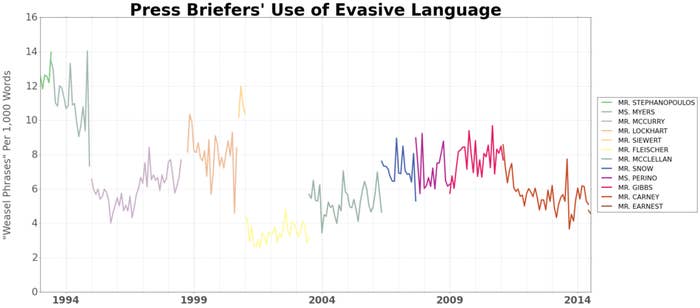
Have an important question about the president's foreign policy, immigration agenda, or tax plan? White House press secretaries have all the answers:
Since 1993, 12 brave souls have accepted the challenge of briefing the White House press corps on a daily basis. As the chief communicators of White House goings-on, press secretaries (official and de facto) must walk a fine line between answering important questions and…not answering them at all.
BuzzFeed analyzed more than 5,000 press briefings since the beginning of the Clinton administration in 1993, looking for "weasel phrases" such as "I can't comment on," "I'm not aware [of/that/etc.]," and "I don't know." (For more details, see the methodology at the bottom of this post. Counting weasel phrases is, of course, an imperfect measure of evasiveness. It does not, for example, capture idiosyncratic methods of misdirection.) Here's what we found:
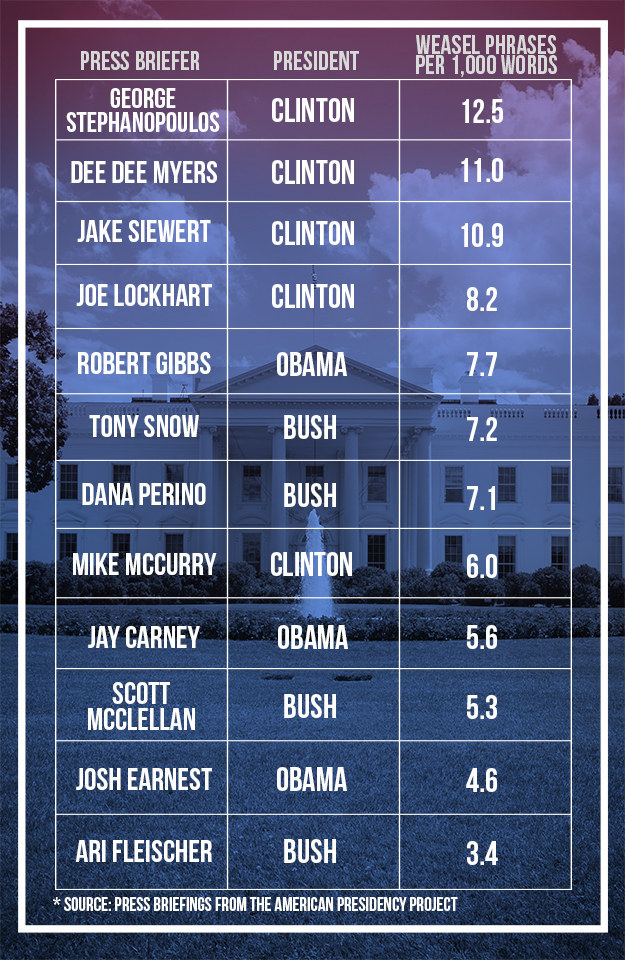
George Stephanopoulos used evasive language more than any other press briefer, averaging 12.5 "weasel phrases" per 1,000 words while representing the Clinton administration. While never officially press secretary, Stephanopoulos led press briefings at the beginning of his tenure before giving way to Dee Dee Myers. As it turns out, Myers ranks second, with 11 weasel phrases per 1,000 words.
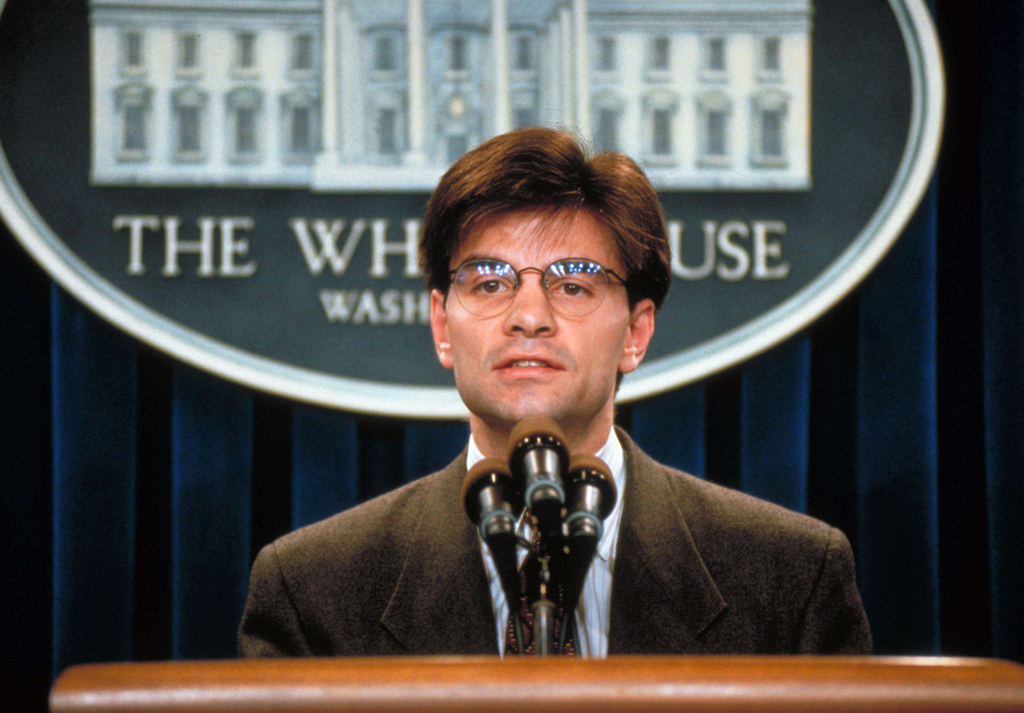
Ari Fleischer was the least evasive press secretary. Fleischer used just 3.4 weasel phrases per 1,000 words while representing the George W. Bush administration.
Bush's self-proclaimed reputation as "The Decider" might have influenced his press secretaries. Fleischer, Scott McClellan, Dana Perino, and Tony Snow used fewer evasive phrases per 1,000 words (5.1) than press secretaries during either the Clinton (7.5) and Obama (6.3) administrations.
Many commentators have criticized Jay Carney's seeming knack for avoiding answers, but he only ranks ninth out of 12, at 5.6 "weasel phrases" per 1,000 words. (Carney's use of "there are some" and "I don't know" was far lower than most other briefers.) Even so, the data seem to confirm Carney's reputation for sending reporters to other sources; he used the phrase "refer you to" more often than any secretary other than Dana Perino. To commemorate Carney passing the press-secretarial torch to Josh Earnest, CNN compiled this illustrative supercut:
Other Trends:
• Press secretaries became gradually more evasive from 2001 through 2009.
• During the Obama administration, press secretaries have gradually become more direct. Current press secretary Earnest trails only Fleischer for lowest weasel-phrase usage — 4.6 per 1,000 words.
• "I don't know," a phrase that press secretaries have uttered almost 10,000 times in the past 21 years, is the most common non-response. The phrase "a lot of" was second with 8,587 mentions. ("A lot of," while not immediately obvious as an evasive phrase, is typically used in evasive answers to make generalizations. An example from a recent briefing: "Well, there are a lot of discussions that are ongoing between U.S. officials and Israeli and Palestinians leaders.")
All Their Favorites:
Each press secretary has linguistic crutches they lean on more frequently. Here are the favorite "weasel phrases" for each of the 12 briefers compared to the average press secretary:
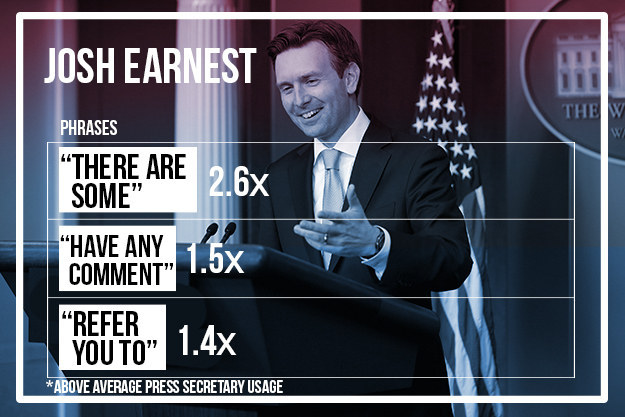
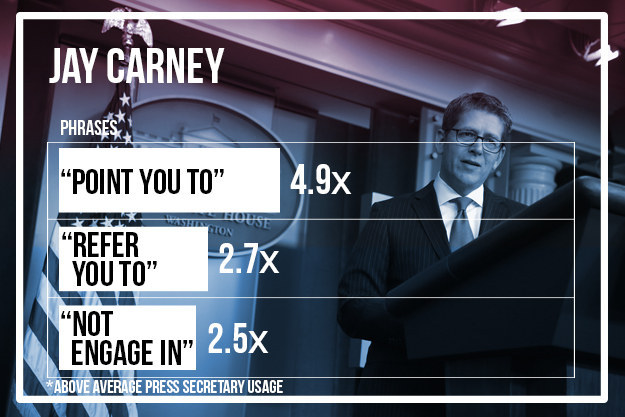
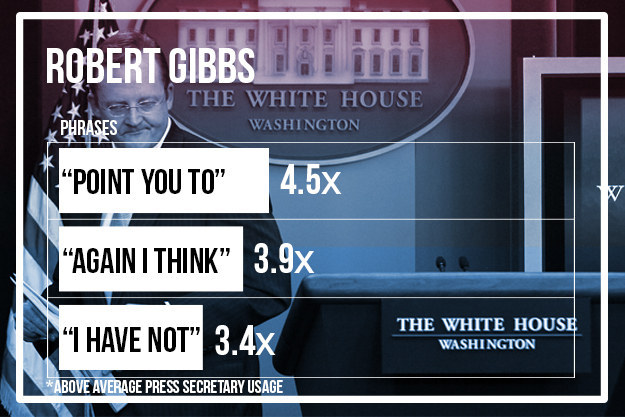
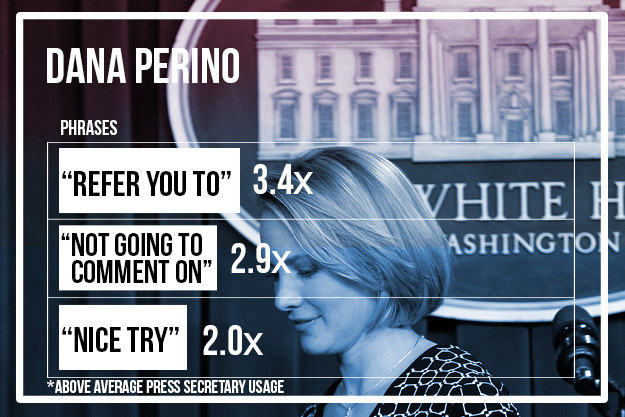
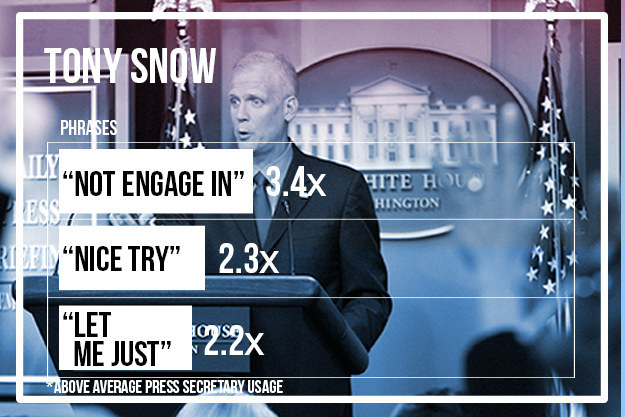
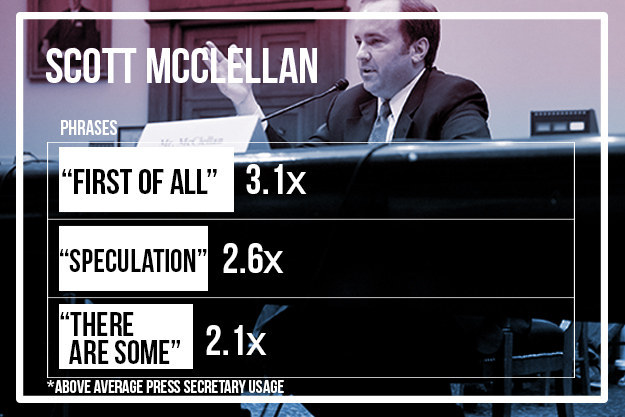
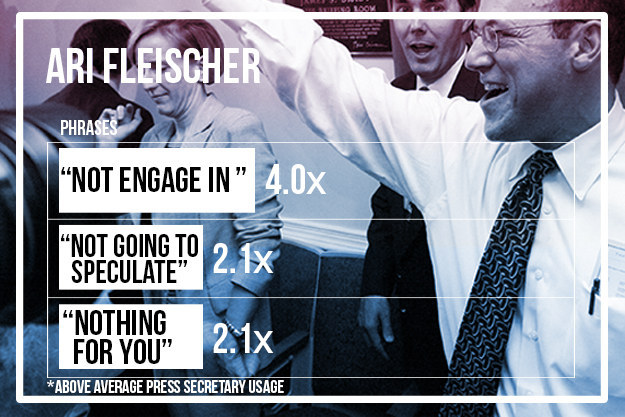
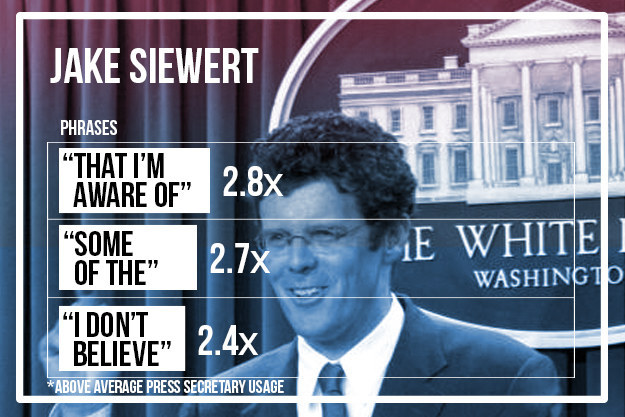
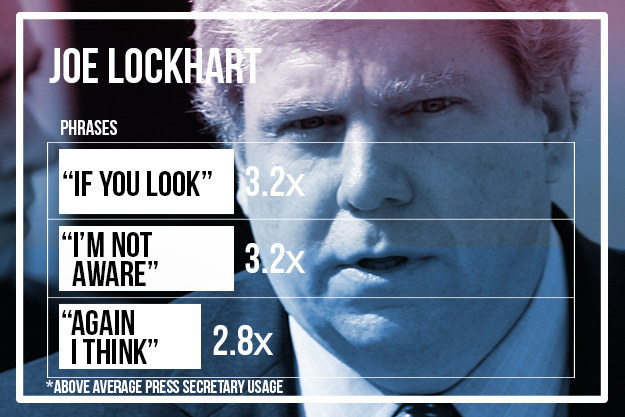
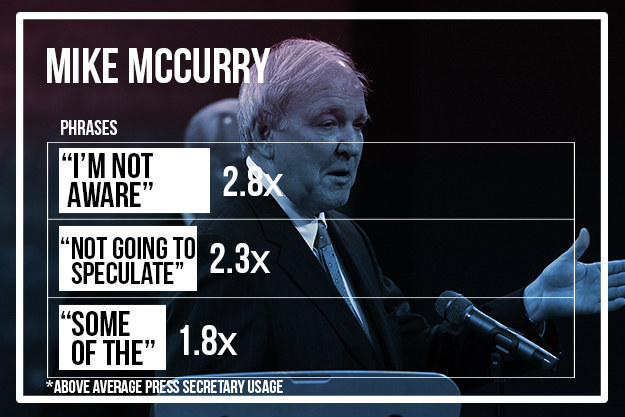
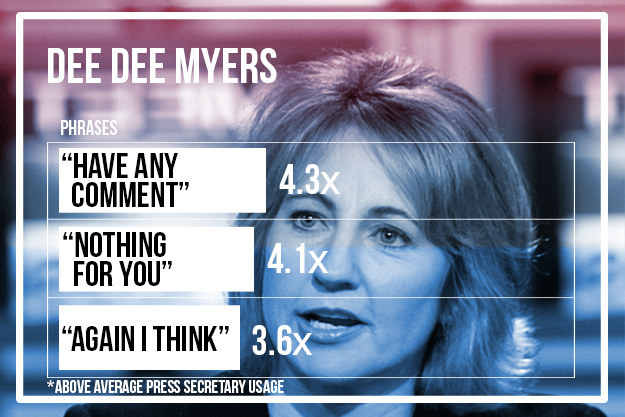
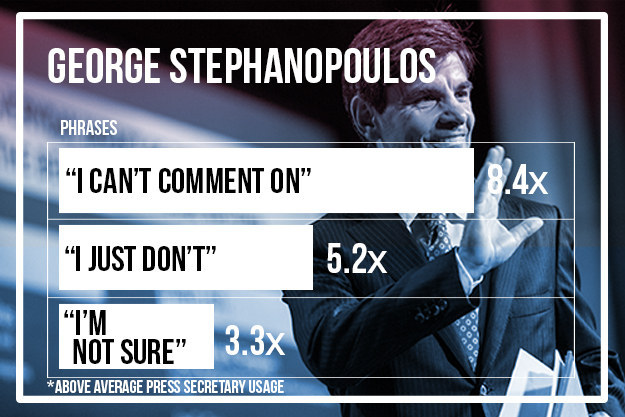
Methodology:
The American Presidency Project keeps an archive of White House press briefing transcripts from 1993 to the present. For this post, BuzzFeed downloaded all those transcripts and extracted the date and speaker for each text passage.
To calculate "evasiveness," we developed a list of phrases that appeared to indicate that the speaker was avoiding answering a question. The list is, of course, subjective, and does not capture the full variety of non-answers. You can find the phrases, and how often they appear, here.
The analyses include only what each press secretary (official and de facto) said during the stretches of time each was the primary daily briefer. The analysis ignores, for example, words spoken while deputy press secretary. The data of course is only as good as the White House transcripts.
Jay Carney was a press secretary for the Obama administration; Mike McCurry held that position in the Clinton administration. An earlier version of a chart in this post swapped their affiliations.

